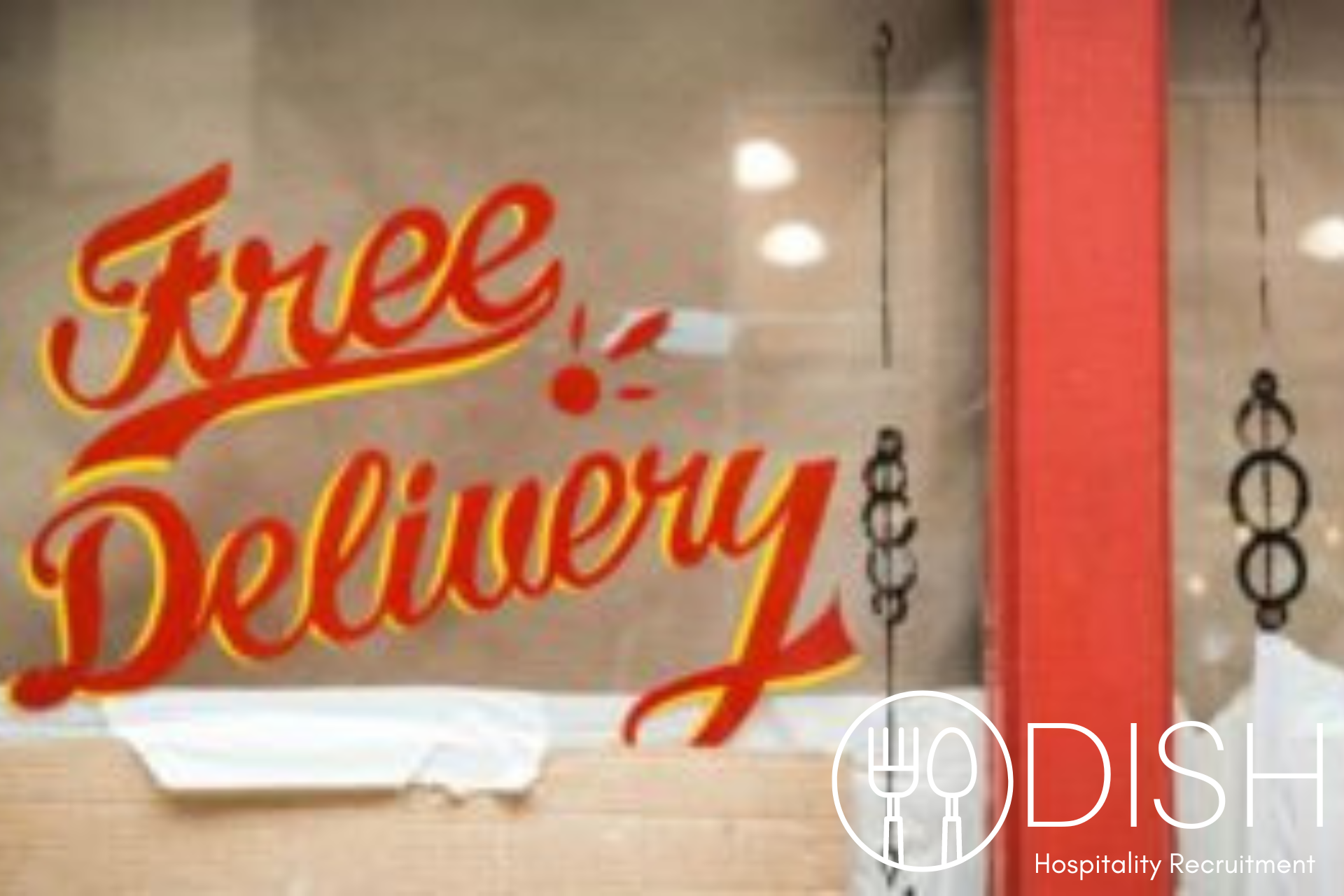
01 Dec How Trust Will Define the Future of the Restaurant Industry 🍲
The jury is in. Delivery is going to be a thing.
According to Morgan Stanley, food delivery will be a $470 billion market by 2025, an obvious mark of shifting consumer behavior and the premium we place on convenience. A new restaurant model has emerged to meet this demand, accelerated by the pandemic and built specifically for off-premises dining. This model is commonly referred to as “ghost” or “dark” kitchens: operators launch restaurant brands from within existing restaurants or lease turnkey commercial kitchens near dense urban centers. The lower start-up costs and possibilities for non-linear growth are exciting, but success will involve much more than simply embracing “ghost” kitchens. It will come down to one thing: trust.
At Salted, we often think about how the trends we’re seeing in the food industry today have already played out in other industries moving towards a new digital age: it was once crazy that someone might trust the quality of new eyeglasses without trying them on in a store (before Warby Parker), or that someone might prefer to discover a movie online when they could just as easily browse the aisles of a local Blockbuster (before Netflix). And yet, we’ve never referred to Netflix as a “ghost movie rental store.” Why? Because successes like Warby Parker and Netflix were not premised around their asset-light business models; they were built on the value they provide to their customers. Equally important, these companies solved real problems using data and technology, which led to high trust customer relationships. This same opportunity exists today with the digitization of the restaurant industry.
Over the next 10 years, there will be many new winners, especially in the quick-service restaurant space, where billions of dollars are at stake, good curation is scaling slowly, and Subway remains the largest “healthy” restaurant in the world. What will it take to build an enduring, trusted restaurant brand? To build longstanding value and be more than just a ghost? Here’s my take.
Solve a Problem
In many ways, it’s never been easier to open a restaurant than in today’s digital-first world. The default path begins with finding a category or cuisine that looks interesting (usually because of a gap in the market or counter-intuitively, a low barrier for execution) and then start building. Thus the proliferation of virtual burger, wings, and cheesy-fill-in-the-blank food concepts. While this sometimes works out, we think the most successful brands will care more about the underlying problem they’re trying to solve and then layer in the actual product (in this case, the food, menu, and brand identity).
Starbucks solved the “third place” problem. McDonald’s solved the “feed the family quick and cheap” problem. Domino’s solved the “it’s late and I’m stoned” problem. What are the other big problems out there left to be solved?
The benefit to this approach is that it’s less reliant on trends that might prove fleeting. When companies solve for the underlying problem, they represent something beyond what’s on their menu and can evolve with customers over time.
Hospitality Wins
How can we replicate the feeling of hospitality we get when we visit our favorite restaurant in person?
It starts with understanding a brand’s values and ensuring they’re reflected in every customer touchpoint. The mistake we see with many digital-first operators is believing that since they don’t have a traditional physical experience, they don’t need to focus on customer experience. We think the opposite is true, especially given the limited curation that exists today and low signal-to-noise ratio.
Yes, there’s truly something that can’t be replicated about being in the same physical space as another person. But technology can be a powerful tool when used with a customer-first mindset to deepen relationships and win trust every day. A lot of this customer-first playbook has already been written by direct-to-consumer companies over the last 20 years—most famously, Zappos with its commitment to “delivering happiness” to customers.
Data Is Our Friend
In today’s digital-first restaurant world, there’s a vast amount of data at our disposal. The hard part is figuring out what’s important.
For starters, not all revenue is created equal and it’s very easy to use top line growth to tell a story of brand-market-fit when it doesn’t actually exist. The more important pieces of data are customer-centric and get to the heart of the trust land grab: lifetime value, NPS score, and conversion rates. Some of this data might be gleaned from sales on marketplaces like DoorDash and UberEats but your own e-commerce platform is a much richer data source. With a direct channel (i.e., yourrestaurant.com or your restaurant’s app), companies can start to run a restaurant like a traditional e-commerce business and get a detailed view for what’s working and what just seems like it’s working.
The Future is Multi-Channel
One thing we’ve seen is that delivery is really just a single channel and in order to maximize lifetime value and build deep relationships with customers, brands need to be everywhere.
This trend has played out with countless D2C brands who originally launched to disrupt a giant, asset-heavy industry—Warby Parker, Everlane, Bonobos, etc—and one by one, in a pre-pandemic world, they opened physical storefronts. Why? Primarily as marketing engines (i.e., “try before you buy”), but also to create a more three-dimensional customer experience, tell their stories more completely, and win trust. Customers want the physical touchpoint, even if most of the relationship unfolds online.
Final Thoughts
In 2021, the global online food delivery market is expected to reach $151.5B in revenue, a 10 percent increase from 2020. Crazy numbers. And yet, we’re in the earliest stages of delivery.
As this shift plays out, new brands that we haven’t even heard of yet will emerge and define the industry. They’ll find ways to use technology to foster hospitality and provide layers of personalized service. They’ll use data to make smart decisions about their costs and invest savings back into the quality of their products. They’ll use online marketplaces as launchpads for multi-channel brand experiences that feel both relevant and positive for the world and their communities. And they probably won’t refer to themselves as “ghosts.” Instead, they will define themselves by their core values and the ways they’re able to earn and keep customers’ trust over long stretches of time. It’s an exciting journey ahead. We’re glad to be a part of it.
Article Source: https://www.qsrmagazine.com/outside-insights/how-trust-will-define-future-restaurant-industry

